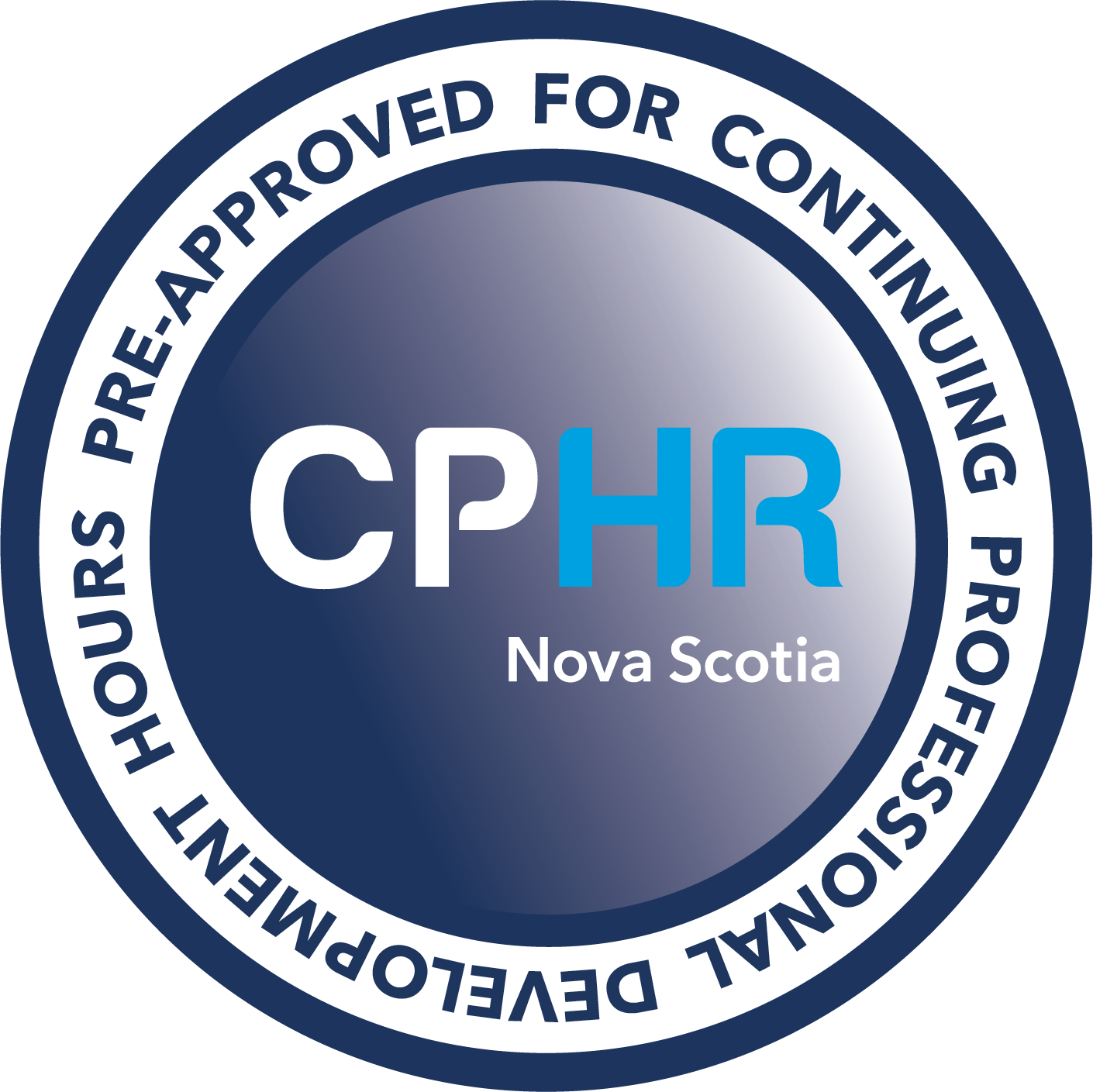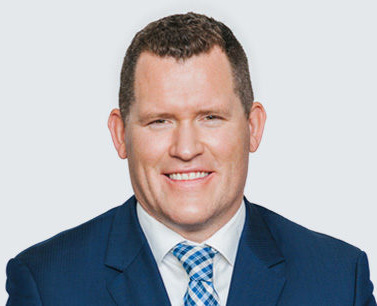Conference Co-Chairs
Conference Advisory Committee
Chris Peddigrew
Arbitrator/Mediator and Vice-Chairperson,
Newfoundland and Labrador Labour Relations Board
Tuesday, May 16, 2023
Breakfast and Registration – 8:00 a.m. – 9:00 a.m. AT
Introductory remarks by Co-Chairs – 9:00 a.m. – 9:05 a.m. AT
Medical Information in Accommodation and Adjudication: Practical guidance for employers and unions
Karen Joudrey
It is generally accepted that employers must request no more employee personal health information than is necessary for legitimate purposes such as administering sick leave or disability benefits, providing accommodation under human rights legislation, or ensuring workplace health and safety and/or an employee’s fitness to work. However, the application of this principle to specific cases generates endless controversy because employers, unions, employees, and healthcare providers often each have their own ideas of what is “reasonable.” This session is designed to provide a common framework that will enable workplace parties to balance employees’ privacy rights with employers’ needs for employee personal health information.
Guided by experienced counsel and a medical expert, participants will learn the legal framework governing the collection, use, and storage of employee personal health information, practical strategies for obtaining and reviewing information from health care professionals, and key principles regarding using medical information at arbitration. Participants will leave ready to:
- assess the reasonableness of requests for employees’ personal health information;
- evaluate the adequacy of information provided and respond appropriately to vague or deficient information;
- approach employees/union members about needed information with sensitivity;
- write requests that prompt timely, useful responses from health care providers and medical experts;
- evaluate the appropriateness and utility of standardized medical information forms;
- determine what type of information should be obtained from different health care professionals (e.g. general practitioners, medical specialists, psychologists, occupational therapists) and assess when specialist reports or independent medical examinations are necessary;
- recognize when a health care professional is acting as an advocate or assuming an inappropriate role;
- safeguard personal health information in compliance with legislation and in accordance with best practices; and;
- use medical evidence effectively in the grievance and arbitration process
Wednesday, May 17, 2023
Breakfast and Registration – 8:00 a.m. – 9:00 a.m. AT
Introductory remarks by Co-Chairs – 9:00 a.m. – 9:05 a.m. AT
The Latest in Labour: Experts address key cases and legislative developments
In this panel, seasoned experts will canvass significant legal developments of the past year, discussing key cases, ongoing litigation, and legislative reforms. Topics to be addressed include issues of jurisdiction, workplace substance use policies, collective agreement issues, proof of vaccination and vaccine mandate issues, and human rights cases. Legislative updates from across the Atlantic provinces will also be discussed, including emergency leave, pay transparency, and union strike rules. Final selection of topics takes place in the weeks leading up to the conference, ensuring coverage of the latest and most important developments.
The Other Wet Floor: Psychological Occupational Risk in Helping Professions
Break 10:40 a.m. – 10:55 a.m. AT
Recovering the Balance: Practical guidance on flexible work, the right to disconnect, and avoiding burnout
Employers must consider their obligation to prevent mental health harms, including burnout, stress, and the consequences of working remotely. Questions to be discussed include:
- How have adjudicators and courts in recent cases defined an employer’s responsibilities and an employee’s rights when it comes to workplace stress, burnout, and other contributors to mental health harms?
- How can employers and unions identify and prevent organizational factors that cause mental health harms? What steps can be taken by employers, unions, and workers to address these factors?
- How can employers, unions, and workers actively reduce the mental health harms that may be associated with remote work?
- How should the “right to disconnect” be defined in corporate policies where such policies are required by legislation? How has it worked in jurisdictions where this right has been legislated? Is it a necessary tool for the well-being of employees?
- Does the right to disconnect assist in preventing mental health harms to employees who are not working traditional 9-to-5 shift schedules?
- Has remote work blurred the line between overwork and overtime? How can employers and unions ensure that there is a workable distinction?
- In protecting and promoting workers’ mental health, including efforts to prevent and reduce stress and burnout in the workplace, what role is there for the National Standard of Canada for Psychological Health and Safety in the Workplace?
Lunch 12:00 p.m. – 1:00 p.m.
Investigations under a Microscope: An examination of current best practices and recent developments
Workplace investigators often grapple with issues of bias, fact-finding, and confidentiality that may emerge during an investigation. In this session, experts will discuss important developments in this area, in addition to practices and policies that safeguard fair and effective investigations:
- Considering the need to preserve a fair, adequate, and effective investigation process, what lessons can be drawn from recent cases about the proper scope of an employer’s investigation?
- What are the essential qualities or qualifications of a competent investigator? When should an external investigator be retained?
- How do unconscious and implicit biases impact human rights investigations in the workplace? What can be done to avoid them?
- How can investigators, in the fact-finding and report-writing process, address pervasive systemic discrimination in the workplace?
- How does adopting a trauma-informed approach to conducting witness interviews affect an investigation?
- What is the role of the union in an investigation? What are the limitations of union involvement?
- What strategies can workplace parties implement to address the challenges of conducting investigations in a remote work environment? Is there any proven or perceived benefit to conducting workplace investigations in-person?
- What are best practices for drafting investigation reports?
- What are the crucial components of an anti-harassment policy? How can an organization adequately monitor its policies for effectiveness? What measures should an employer take when an allegation is not substantiated?
Break 2:15 p.m. – 2:30 p.m.
Disabilities That Elude Diagnosis: Accommodating employees with Long COVID, Chronic Fatigue Syndrome, and other poorly understood conditions
Workplace parties are familiar with applying principles regarding the duty to accommodate in cases of visible disabilities, well-known conditions, or conditions for which there exists a clear diagnostic test. However, challenges often arise when an employee seeks accommodation for a condition that eludes diagnosis. In this session, experts will address questions such as:
- What are common medical conditions that elude diagnosis or that are considered “diagnoses of exclusion”? Why does “Long COVID” fall within this list?
- Is a definitive diagnosis, or “objective evidence,” necessary to establish an invisible disability? How should employers and unions respond where there is a lack of available medical practitioners with the requisite knowledge or experience to assess and attest to the condition?
- How can employers and unions effectively formulate requests for medical information in cases where an employee’s condition cannot be confirmed using a clinician’s diagnostic test?
- When sick leave abuse is a concern, how can an employer distinguish between employees who have genuine, difficult-to-diagnose disabilities, and employees who are malingering? When will an employer be justified in seeking further information, including a specialist’s report or an independent medical examination?
- May an employer discipline or dismiss an employee who is frequently absent, underperforming, or exhibiting atypical workplace behaviours but who asserts that it is due to an as-yet undiagnosed disability? Does the fact that a disability is difficult to diagnose impact the assessment of whether the employer has accommodated the employee up to the point of undue hardship?
- How do the stereotypes and stigmas associated with these medical conditions contribute to the challenge of providing accommodation?
- Where an employee has a difficult-to-diagnose disability that manifests episodically, is an employer legally permitted to request medical information from the employee on a periodic or ongoing basis?
- What types of accommodations may be of assistance to an employee suffering from persistent or chronic symptoms that may impact their ability to work? For example: What will help individuals coping with Long COVID? How can employers and unions cooperate to support such employees in the workplace?
Networking Reception 3:45 p.m. – 5:00 p.m. AT
Thursday, May 18, 2023
Breakfast and Registration – 8:00 a.m. – 9:00 a.m. AT
Introductory remarks by Co-Chairs – 9:00 a.m. – 9:10 a.m. AT
Digital Dignity: Protecting privacy in an era of workplace surveillance
Erin Delaney
Government of Newfoundland and Labrador
How can employers and unions ensure that workplace surveillance is reasonable and does not encroach on employees’ rights? In this panel, experts will discuss best practices in balancing employee privacy against the use of monitoring technologies in the workplace. Specifically, panelists will address:
- What key items should employers and unions address in policies and collective agreement provisions governing privacy and surveillance?
- What workplace surveillance is permitted under the Freedom of Information and Protection of Privacy Act?
- Do proposed changes in the federal Digital Charter Implementation Act, 2022 (Bill C-27) adequately address the criticism that existing privacy legislation does not comprehensively respond to the availability of mass data collection on employees?
- How have arbitral attitudes towards workplace privacy evolved in response to modern surveillance technologies?
- What concerns do keystroke mapping technologies and other methods of surveillance pose for employees’ privacy and human rights?
- What is the proper balance between a remote employee’s right to privacy in their home and an employer’s legitimate supervisory interests?
- Can employees object to off-duty surveillance? If so, how should off-duty surveillance be addressed in policies and collective agreements?
- What continuing practices should employers and unions apply to ensure that employee information is kept confidential and secure?
Break 10:20 a.m. – 10:35 a.m. AT
Off-Duty, Off-Base? Balancing freedom of expression and the right to a respectful workplace
Lynne Poirier
Where should the line be drawn between safeguarding employee freedom of expression and ensuring a workplace free from harassment and inappropriate or offensive communications? Is it relevant if an employee’s off-duty conduct is offensive to co-workers? In this panel, experts will explore employer and union responsibilities in ensuring appropriate employee conduct, both inside and outside the workplace. Specifically, panelists will address:
- What key provisions should be included in workplace policies and collective agreements to address inappropriate conduct? Can these provisions encompass off-duty conduct?
- Are employers permitted to limit how employees represent themselves while off-duty? Is the nature of the business relevant?
- Can employers or unions offer or require training regarding off-duty conduct?
- Can employers ban workplace discussions on controversial or political topics in the workplace? If so, how would a topic be assessed as “political” or “controversial”?
- What are the duties of unions when representing members facing consequences for expressing unpopular opinions in the workplace? Is the union’s duty any different if the member is being disciplined for expressions made outside the workplace?
- Does an employee have any duty to report a controversial off-duty statement by another employee?
- What are best practices for employers and unions to ensure that an employee’s Charter or Human Rights Act rights are supported while maintaining a workplace free from discrimination and harassment?
Lunch 11:50 a.m. – 1:00 p.m.
Disciplinary Dilemmas: When is coaching discipline? When is union representation required? When is there a right to remain silent?
Rights and responsibilities differ when an employer is engaging in job “coaching” or performance management as opposed to imposing formal discipline. In this session, expert speakers will examine key issues pertaining to disciplinary processes, addressing questions such as:
- How can parties clearly differentiate job coaching and training, performance management, and discipline? When and to what extent can management take action to improve worker performance without this amounting to a formal warning or other disciplinary act?
- What circumstances trigger an employee’s right to union representation? How have arbitrators distinguished meetings or discussions which are merely “investigatory” or otherwise non-disciplinary from those which are disciplinary and attract procedural protections? Where an employee does have a right to union representation, must an employer inform the employee of that right?
- Do employees have a qualified right to remain silent in investigative meetings where they reasonably believe a disclosure may expose them to discipline? May employees be disciplined solely due to their decision to remain silent? When employees are or may be subject to criminal charges in relation to the factual circumstances underpinning an investigatory or disciplinary meeting, may those employees seek to protect themselves against self-incrimination?
- hat ought an employer do to ensure fairness toward an employee in the course of a disciplinary meeting or process? Where an employer fails to follow procedural requirements in relation to a disciplinary meeting, or unnecessarily delays the disciplinary process, will this impact an arbitrator’s willingness to uphold a disciplinary measure?
- Where a union representative participates in a disciplinary meeting, what is the scope of that representative’s role?
- How may an employee’s conduct during a disciplinary meeting impact an arbitrator’s assessment as to whether to uphold the discipline imposed?
Break 2:15 p.m. – 2:30 p.m.
Is Virtual the New Reality? Debating the pros and cons of virtual labour relations
- Are virtual hearings a comparable substitute for in-person hearings? What is lost or gained when conducting hearings virtually?
- a. Do virtual proceedings allow for more inclusivity and access to justice? If so, how?
- b. Do virtual proceedings pose any concerns regarding credibility?
- c. Can demeanor and body language be assessed virtually?
- d. Have virtual proceedings reduced costs and delays?
- How have parties adapted to bargaining virtually?
- What steps should labour relations professionals take to ensure privacy and confidentiality is respected during virtual proceedings?
- Do Canadian labour relations professionals have a “duty of technological competence” similar to duties imposed on American attorneys?
- Are additional technological safeguards necessary for virtual discussions regarding personal health information or other confidential matters?
- What steps should unions take to ensure that there is effective representation and cohesion among members who primarily communicate remotely?
- How should virtual labour relations practices be addressed in workplace policies or collective agreements?
Conference ends – 3:45 p.m.

This program has been approved by CPHR Nova Scotia for 5.5 Continuing Professional Development hours.







































